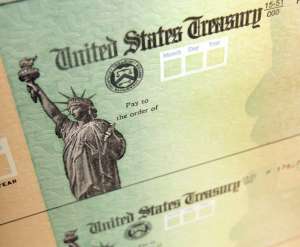
STAFF REPORT
“It’s the ONE question nearly all Social Security recipients are asking: Will I get a Coronavirus stimulus check? If yes, do I get one even if I haven’t filed a tax return in recent years? The answers are YES and YES!,” says Jeff Szymanski, political analyst at the Association of Mature American Citizens [AMAC].
The “Coronavirus Aid, Relief, and Economic Security Act” (CARES Act) passed by Congress provides for substantial stabilization of America’s economy during the unprecedented medical crisis now sweeping the country. The Act provides critically needed funding in key areas like expanded unemployment benefits and specific aid to many business segments facing extraordinary disruption, along with financial relief payments to most Americans, subject to income guidelines below.
“Under the Act’s provisions, Americans having a valid Social Security number will receive direct cash assistance, specifically including those who receive welfare and Social Security benefits. Relief payments will be $1,200 for individuals, $2,400 for couples, and $500 per child, for individuals with incomes at or below $75,000 ($112,500 for heads of household) and couples with income at or below $150,000. Individuals earning up to $99,000 and couples up to $198,000 will receive a reduced payment, prorated according their higher income level,” according to Szymanski.
The procedural details on how the approved payments will get into the hands of recipients are still being finalized, but these are the general elements:
- According to Treasury Secretary Steven Mnuchin, most payments should be in the hands of recipients within three weeks
- Eligibility for cash payments is based on income as reported in your most recent income tax return (note: adjusted gross income is the figure used)
- If you did not file tax returns and are receiving Social Security payments, the IRS can use your Form SSA-1099 Social Security Benefit Statement or your Form RRB-1099 Social Security Equivalent Benefit Statement to send your check
- If you have received a tax refund in the last two years by direct deposit, that’s where your money will be sent. If not, the IRS will mail a check to your “last known address”
- The IRS will mail a notice confirming distribution of your payment, along with IRS contact information if you haven’t actually received the confirmed payment
- You do not need to do anything in advance. For many recipients, the IRS has your banking information and will likely execute direct transfers to your account
AMAC’s sister organization, The AMAC Foundation, updates a site five days a week entitled The Social Security Report. For the absolute latest daily information on this vital program, visit www.socialsecurityreport.org. Many of this week’s headline and latest news posts on The Social Security Report deal specifically with The CARES Act (Stimulus Bill), and those seeking more detailed information will find it a valuable resource.
But to reiterate, reports Szymanski, “YES, Social Security recipients are eligible and need do nothing at all to receive their $1,200 per person relief payments due them. If you are required to file a tax form, it is likely that having done so already may speed up delivery of the payment.”